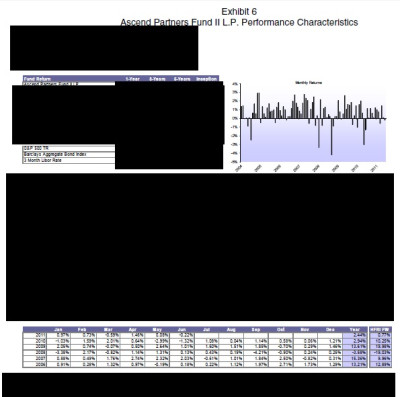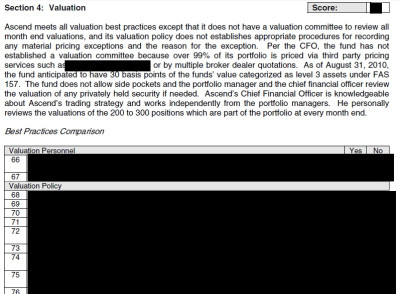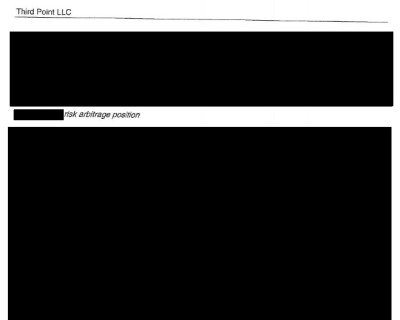RI Receives “C+” in Online Access to Gov’t Spending Data
Thursday, March 19, 2015
GoLocalProv News Team
The state of Rhode Island has received a grade of C+ in a new report: “
Following the Money 2015: How the 50 States Rate in Providing Online Access to Government Spending Data,” which evaluates each state on how well it provides spending information online and assigns them with “A” to “F” letter grades. The report was made by the good government group
Rhode Island Public Interest Research Group Education Fund.
“Rhode Island has shown some real progress - from a D+ to a C+ in this year’s scorecard – but is still a ways behind Connecticut and Massachusetts," said Phineas Baxandall, senior Analyst and Program Director of the US Public Interest Research Group. Connecticut and Massachusetts both earned an A grade in the report.
Rhode Island, Maine, and New Hampshire all earned a C+, which places the states in the “Middling” category- with “generally comprehensive and easy-to-access check- book-level spending information but more limited information on subsidies or other off-budget expenditures.”
GET THE LATEST BREAKING NEWS HERE -- SIGN UP FOR GOLOCAL FREE DAILY EBLAST
According to RIPIRG, “Transparency in state spending increases accountability, reduces corruption, and promotes greater effectiveness and fiscal responsibility. Several states have made significant progress since last year’s report, but the most transparent states provide the public with information about types of expenditures that otherwise receive little public scrutiny, like spending on economic development subsidies and off-budget agencies.”
The full report is available at RIPIRG’s website.
See how Rhode Island compares with other states in the charts below:
Related Slideshow: Hedge Fund Reports Censored
Below are excerpts of the redacted reports on hedge funds the state Treasurer provided to GoLocalProv. The documents are known as Due Diligence reports. They are used to help the State Investment Commission evaluate hedge funds before making decisions about investments. There are two types of the reports: one on the fund’s investments and one on the fund’s operations. With each excerpt, is a brief description of the information it contains.
 View Larger +
View Larger +
Prev
Next
Hedge Fund Performance
Investment Due Diligence Report
August 2011
Hedge Fund: Ascend Partners Fund I and II
Description: The image on the left is from Page 10 of the 17-page due diligence report on Ascend Partners prepared by Cliffwater Associates for the State Investment Commission. In the selected excerpt, just about all the information pertaining to the performance of the hedge fund has been redacted. The section preceding the table states that the second fund launched by the firm had an annualized return of 8.12 percent. The redacted exhibit is said to contain “more detailed performance data” including “statistics pertaining to more recent returns.”
 View Larger +
View Larger +
Prev
Next
Secret Scores
Operations Due Diligence Report
September 2010
Hedge Fund: Ascend Partners Fund I and II
Description: To the left, is the top of the second page in the due diligence report Cliffwater prepared on Ascend Partners. As the context makes clear, no actual proprietary information about the fund itself is discussed in the page. Instead, the “scores” that a reviewer at Cliffwater gave to the hedge fund—on everything from business to risk management are redacted. Even the name of the fund’s external administrator is withheld.
 View Larger +
View Larger +
Prev
Next
No Simple Yes or No
September 2010
Hedge Fund: Ascend Partners Fund I and II
Description: To the left, is the third page of the same document from the preceding slide. The table appears to be a standard form that Cliffwater uses in its evaluation of all hedge funds. Note that the redactions encompass critical information about the fund’s compliance with SEC regulations and the protections it has for investors—in this case, state retirees. Not only are the standard measures it employs blacked out, but whether the hedge fund meets those measures—a simple “yes” or “no” is blocked too.
 View Larger +
View Larger +
Prev
Next
Veiled Valuation
Operations Due Diligence Report
September 2010
Hedge Fund: Ascend Partners Fund I and II
Description: The valuation process is critical to determining the value of one’s investments. The redacted excerpt shown to the left briefly explains that the hedge fund does not determine the own valuations. Instead, those are determined by third-party services. The report purports to give an example of one of those services. But apparently that too is considered confidential information by state authorities. Notably, even though the hedge fund does not have a valuation committee, the section on the next page about the valuation committee members is still redacted.
 View Larger +
View Larger +
Prev
Next
Short Summary
Operations Due Diligence Report
November 2010
Hedge Fund: Viking Global Equities
Description: The summary section for most due diligence reports on hedge fund operations are usually the least redacted portions of the reports, but not here, where so much has been redacted it’s nearly impossible to infer anything about the information that has been withheld.
 View Larger +
View Larger +
Prev
Next
Behind Closed Doors
Operations Due Diligence Report
November 2010
Hedge Fund: Viking Global Equities
Description: The redactions to the left again raise the question as to how trade secrets and proprietary information are defined by the state Treasurer’s office. Here even attendees at meetings between Cliffwater, the state’s investment adviser, and the managers of the hedge fund under review are blacked out.
 View Larger +
View Larger +
Prev
Next
No Name Partners
Investment Due Diligence Report
January 2011
Hedge Fund: Third Point Partners
Description: Under the state’s interpretation of confidentiality rules it is apparently permissible to name the CEO but not his partners. GoLocalProv checked the firm’s Web site and its current partners who compromise the executive team—including their education and prior experience—are listed. But none of their backgrounds matched those of the partners mentioned here. None of which explains why the names are redacted.
 View Larger +
View Larger +
Prev
Next
What Risk?
Investment Due Diligence Report
January 2011
Hedge Fund: Third Point Partners
Description: To the left is what appears at the top of Page 11 in a 23-page report on investment performance and management by Third Point Partners. The two blocks shown here are in a series of black boxes which supposedly contains examples of the firm’s investment strategy. Here even the subhead describing the investment is partially redacted.
 View Larger +
View Larger +
Prev
Next
Three Strikes
Investment Due Diligence Report
July 2011
Hedge Fund: Winton Capital Management
Description: Many of the redactions are as surprising for what is redacted as for what is revealed. In this table of key staff at Winton Capital Management, most are listed, along with their years of experience and their educational background. The table even notes that the second-in-command position at the firm is occupied by the nephew of its chairman and founder. But three names are deleted for no apparent reason. Were these employees fired? Or did they leave for other work? Either way does such information fall under the category of trade secrets or proprietary information?
 View Larger +
View Larger +
Prev
Next
Dark Money
Investment Due Diligence Report
July 2011
Hedge Fund: Winton Capital Management
Description: One can understand why a hedge fund might not want to disclose details of how it compensates its staff—as that is the primary means of incentivizing high performance among employees. But what about the public’s right to know? Or the right of state employees to know whether their pension savings are supporting outrageously high bonuses for hedge fund executives?
Related Articles
Enjoy this post? Share it with others.

























